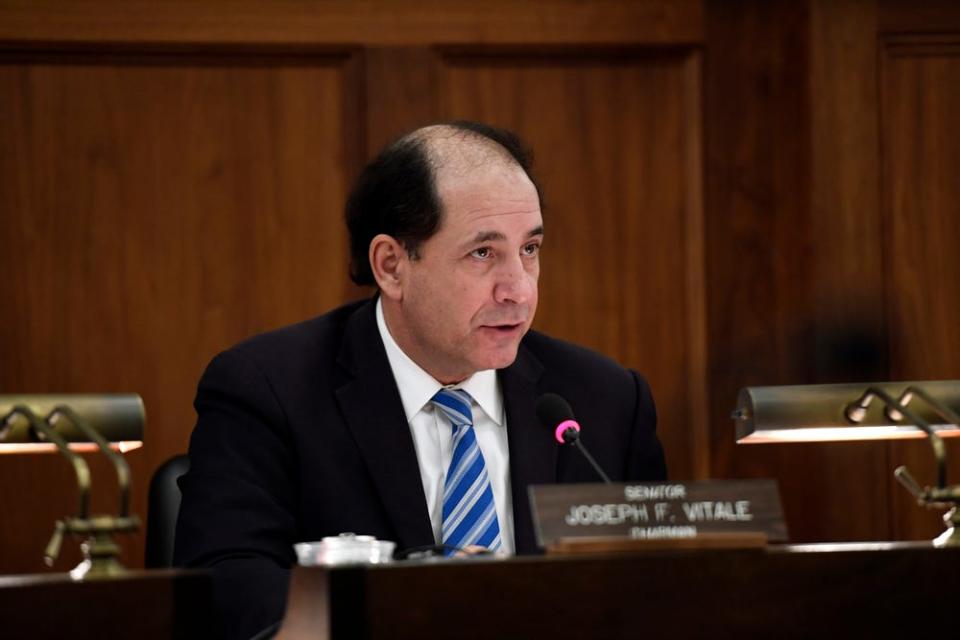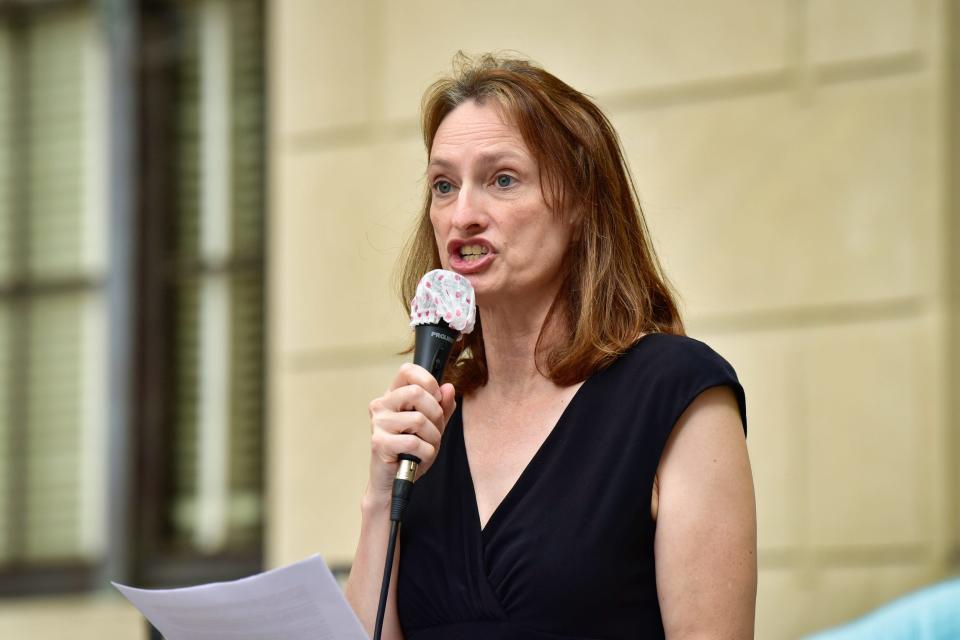Mental health advocates raise alarm over new NJ involuntary commitment law
- Oops!Something went wrong.Please try again later.
People experiencing mental health crises could face longer involuntary commitment times in hospitals and emergency departments under a new law that Gov. Phil Murphy signed this month.
The involuntary commitment law previously allowed hospitals up to 72 hours — three days — to hold people in need of emergency mental health treatment while a judge determines what’s next for patients’ psychiatric treatments.
Under the updated law, hospitals can apply for a court order that allows them to hold a patient for up to 72 additional hours — a total of six days — if the holding hospital or emergency department proves it cannot find a short-term care or psychiatric facility with available beds within the first three days.
"Hospitals are having a hard time finding placement for people who are at risk, who are a danger to themselves or others," said Sen. Joseph Vitale, D-Middlesex, one of the bill's primary sponsors. "It's everyone's benefit, including the person who's in the hospital, to stay in the facility another day or two. They shouldn't just be let out onto the street after several hours in a hospital."

Patients see a social worker while they're involuntarily held in hospitals, Vitale said. The new amendments require patient evaluations at least once every 24 hours during the extra 72 hours, conducted by a psychiatrist who considers several factors to decide whether to detain someone, including the person’s danger to themselves or others and the person’s hospitalization history.
Vitale said the Legislature's goal is to "try to resolve the capacity issue" in two years, which the Legislature is working on, but "it's a money issue." Murphy echoed in a statement that this short-term solution allows general hospitals and satellite emergency rooms to apply for the court order for only a two-year period.
He said it provides a temporary solution for people experiencing crises until appropriate interventions are determined and steps are taken to increase the capacity of psychiatric care facilities.
Mental health, social services groups oppose the law
Nearly 50 statewide and national organizations disagree with the new law. They urged Murphy to veto the bill in an open letter posted in late July, saying emergency rooms are ill-equipped to provide specialized mental health care and could result in more trauma for patients.
"We are extremely disappointed that the governor signed the bill, as we believe that the bill infringes on the rights of individuals with mental health disabilities but was passed quickly without a review of whether it was needed," said Mary Ciccone, the director of policy for Disability Rights New Jersey, one of the groups that signed the letter.

Another signer, the New Jersey Psychiatric Rehabilitation Association, called the need for the law "narrow." Vitale and Murphy said the law addresses the lack of access to short-term care beds, but Kimberley Higgs, the association's executive director, said "that is the case in a handful of counties" — not statewide.
When hospitals do face challenges finding someone a bed in 72 hours, "it can be a result of a number of factors outside of hold time or bed capacity," the joint letter reads. It says psychiatric units may not accept uninsured people, those previously involved with the criminal legal system, or people who are unhoused or have disabilities.
The text also raised concerns about racial disparities, saying studies show that patients of color are "more likely to be deemed a 'danger' and involuntarily committed than white patients."
'Comparable to solitary confinement'
The letter echoed Ciccone's critique that state legislators failed to hear input from stakeholders and evaluate needs while developing the bill.
Vitale said he spoke to hospital staff members who are "professionals who care for these people," are "truly concerned" and don't want to hold someone in the hospital.
"It's not as if they're chaining them to a bed," he said. "It's ridiculous that [organizations] think another day or so is infringing on [patients'] rights when they're a danger to themselves. We have to be able to have the right kind of facility for someone."
The letter, however, says involuntarily committed patients in emergency rooms "rarely receive mental health treatment and other services" and are often restrained while held in these facilities.
"In many cases, being locked in a single room in an emergency department is comparable to solitary confinement, and can be expected to impede people's mental health recovery," said Jay Yudof, a New Jersey-based psychiatric rehabilitation specialist and community mental health advocate.
Murphy said New Jersey’s health and human services departments will conduct a “comprehensive study” to determine future actions for involuntary commitment and access to mental health care. Advocates including Yudof, though, wish the Legislature had conducted the study before passing the law. He said alternatives to hospitalization, such as peer-run respite houses, already exist in New Jersey but need expansion.
"We all call on the state to block this restrictive bill until better alternatives are up and running, any remaining logjams can be studied, and more humane alternatives are developed, consistent with the legal mandate to treat mental health symptoms in the least restrictive and most appropriate setting," Yudof said.
This article originally appeared on NorthJersey.com: NJ involuntary commitment law alarms mental health advocates

